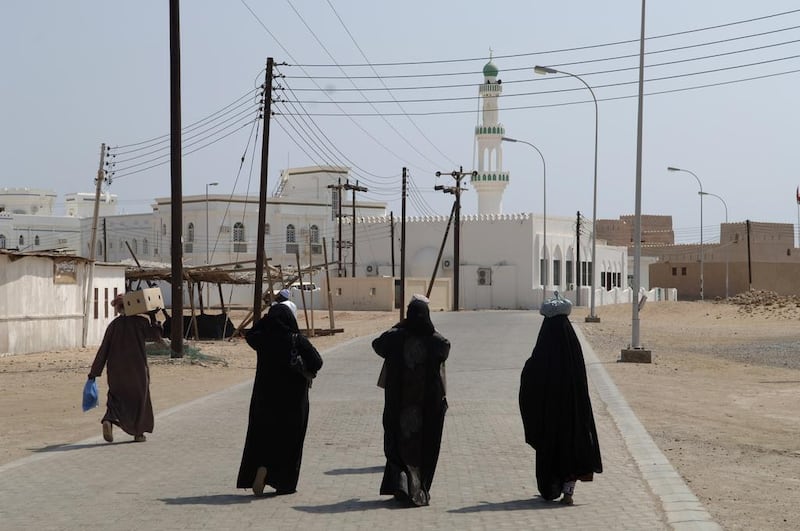MUSCAT // Farhat Al Haddabi wanted to further her education and gain more qualifications in the United Kingdom, but her husband disapproved. So she divorced him.
The 31-year old accountant decided to end her three-year marriage after her husband refused to “grant” her permission to travel to Britain to study for her doctoral degree in general education.
"I tried to talk to him gently but he flatly refused. I am ambitious and he knew it when he married me. The final straw when he said I could not go without his permission. It was then I decided to divorce him," Ms Farhat told The National.
Statistics from the Ministry of Awqaf and Islamic Affairs show that Omani women initiate more than half of the divorces in a country where tradition and cultural values are fast changing. Omani women initiated an average of 58 per cent of all divorces in the country in the last five years.
Ms Farhat was not the only married woman who was bold enough to take steps to escape a “one-sided marriage”. Maha Al Juma, began divorce proceedings six months after their honeymoon when her husband gave her a list of ultimatums.
“I should not drive, I should stop working, I should not put on make up and I have to cover my face. It was a one-sided marriage and all about him. It was time to leave him,” said the 29 year old, who works as a human resources assistant manager for a bank.
Equipped with better education and good positions in the workplace, women are fast leaving behind traditions they regard as oppression and contesting marriage values much more than men, marriage counsellors say.
“It is a different deal now from what it was 20 years ago. Women are more getting into the driving seat of marriage than ever before. They see marriage as an equal partnership where one partner does not make up all the rules,” said Dr Habsia Al Naabi, a marriage counsellor.
“Women are now ready to break away from the mould of tradition and cultural barriers. It is all about education and career pursuits. Long gone are the traditions where only the husband is the bread winner. Women these days bring the bread home, too.”
Women make up 53 per cent of the total number of students enrolled in the universities and colleges in the academic year of 2016-2017. Ten years ago, women made up only 38 per cent of students in higher educational institutions.
More women work outside the home now, too. Ten years ago, women made up only 16 per cent of the total workforce in the Sultanate. A decade later, this figure has jumped to 37 per cent. However, professional women claim they still lag behind in terms of pay compared to their male counterparts.
“There are no official figures to substantiate this but professional women still don’t get paid the same salaries as their male colleagues despite the breakthrough they are making in education and careers,” Maryam Al Kindy, a dentist in a government’s hospital, said.
Many in Oman still disagree with the concept of a marriage based on an equal partnership.
“A man must have control of his house, his children and of course his marriage,” said Shaker Al Zaabi, a 51-year-old civil servant who has been married for 26 years. “We take women from their homes to take care of them and we give that solemn promise to their parents. Marriage is not a business contract to have partners. It is more a man’s responsibility where a woman plays a diminished role.”
But not all men think that way. There are those who advocate respecting and supporting a woman’s role in marriage as a partnership of equals.
“A marriage cannot be successful if women are not equal partners,” said Qahtan Al Ghanami, a 39 year old petroleum engineer. “Our 12-year old marriage has had ups and downs but I always respect the opinions and advice of my wife. If we share the mortgage and the education fees of our children then it is a kind of business partnership based on mutual respect.”
Older women applaud the leap females have made in the last decade saying that men must understand the change in marriage values.
“In our generation, we could not leave our husbands if they stopped our progress because we were not educated, “ said Rahma Al Shamsi, 66. “Now it is happening and I think this is a positive change in our society. Men now must understand that their wives contribute equally in their joint lives.”
foreign.desk@thenational.ae





